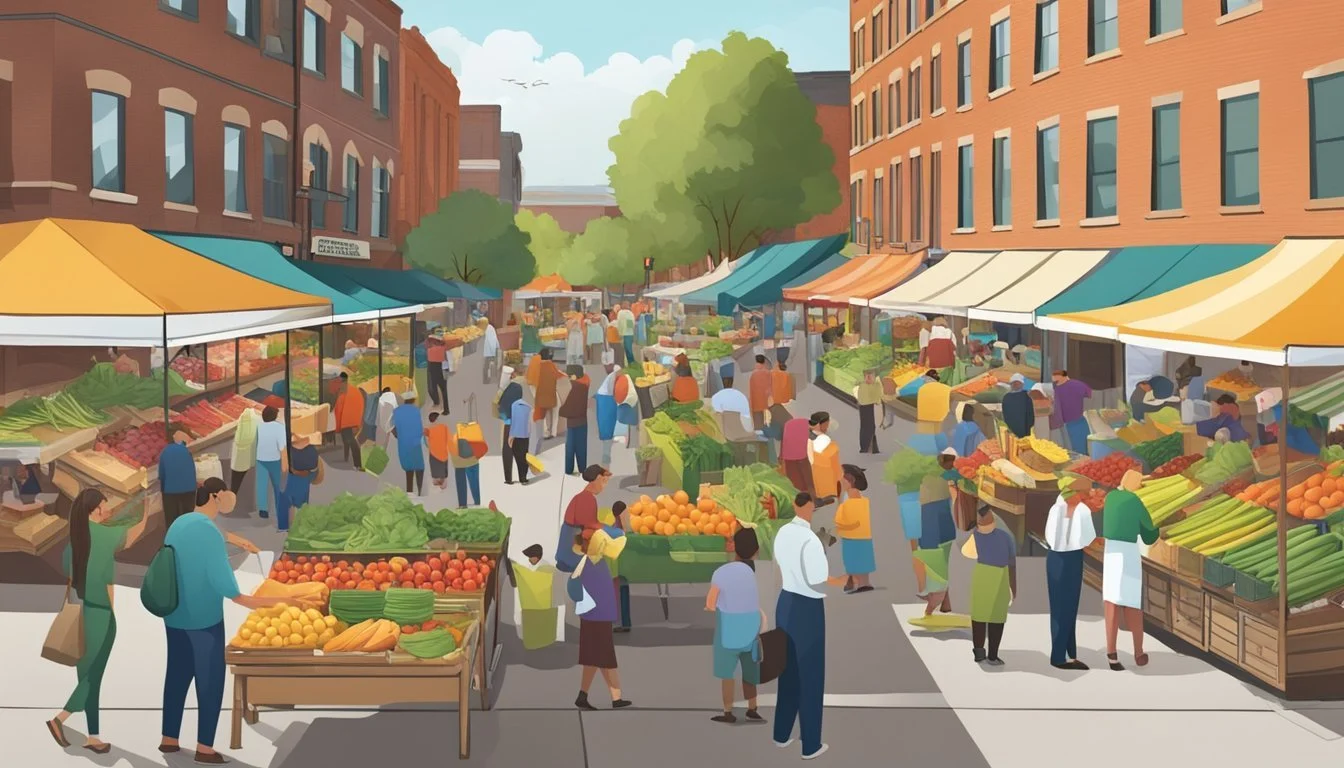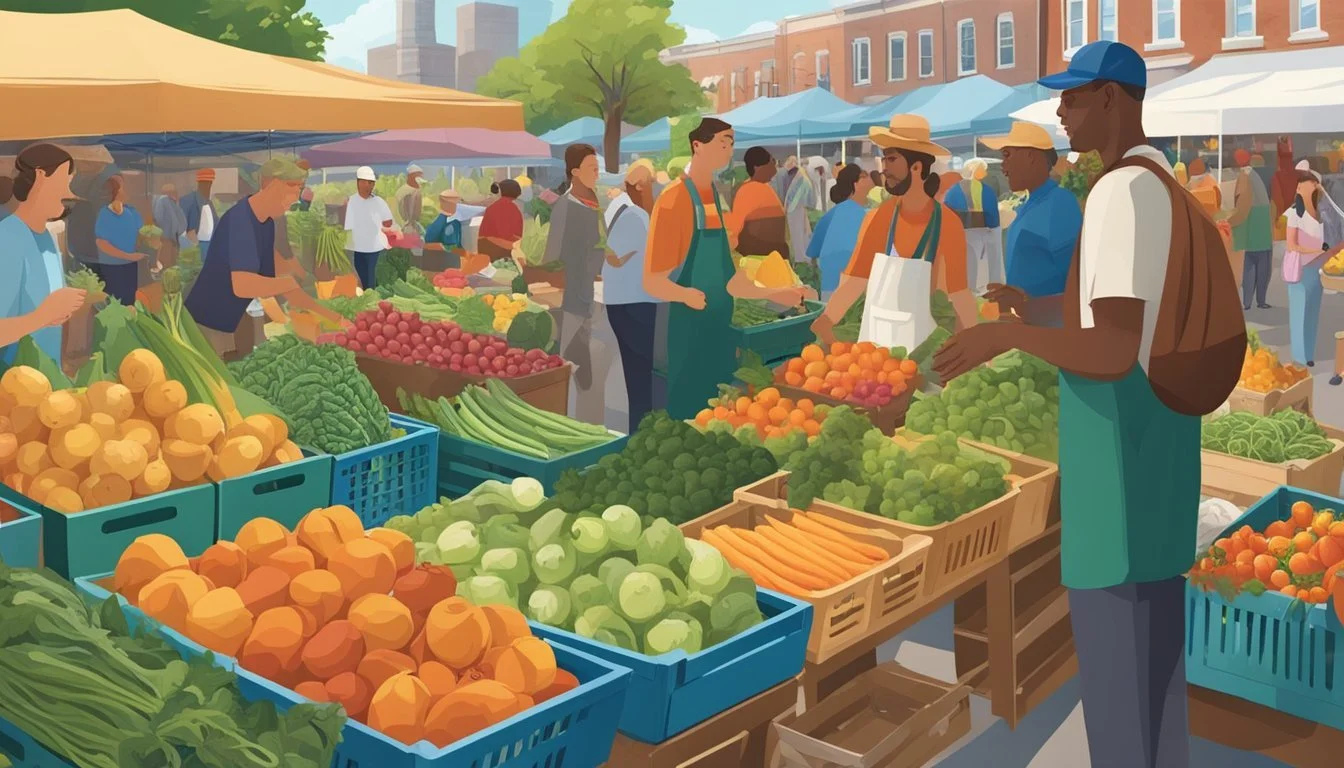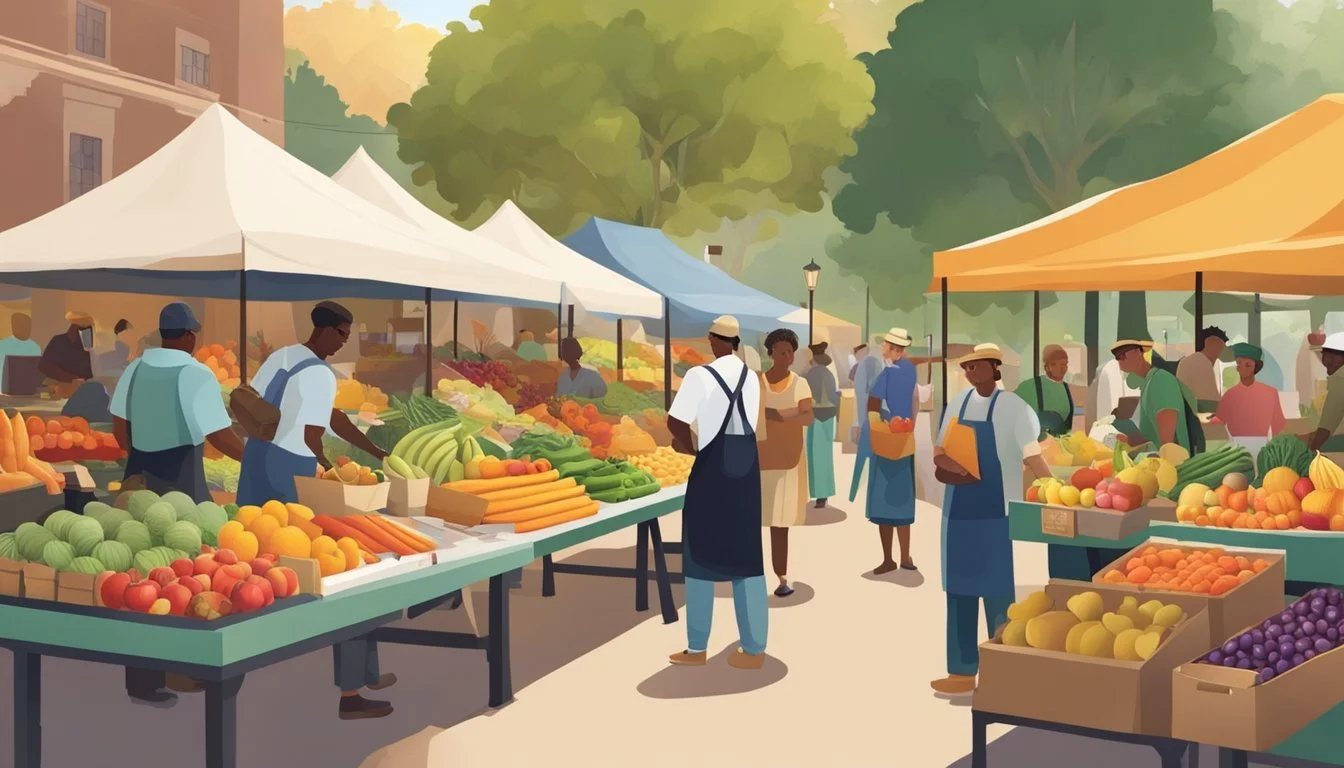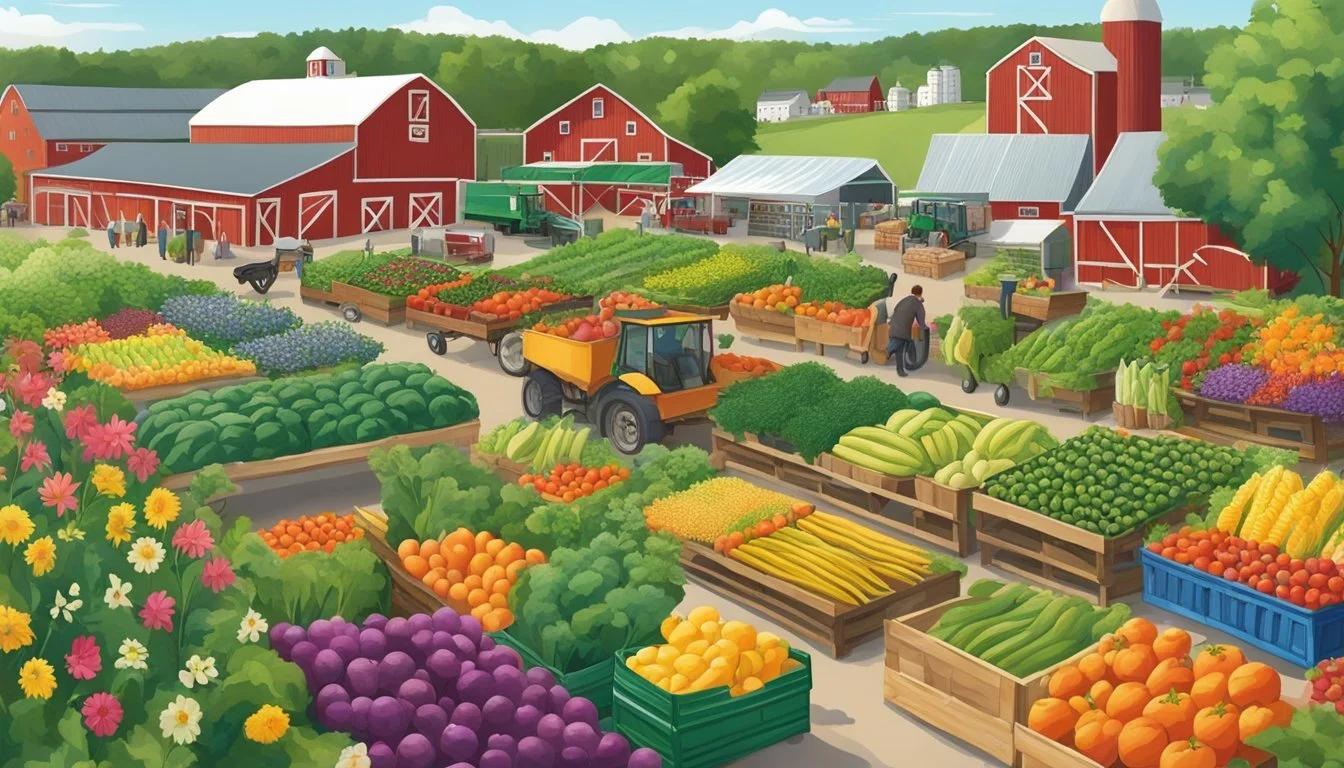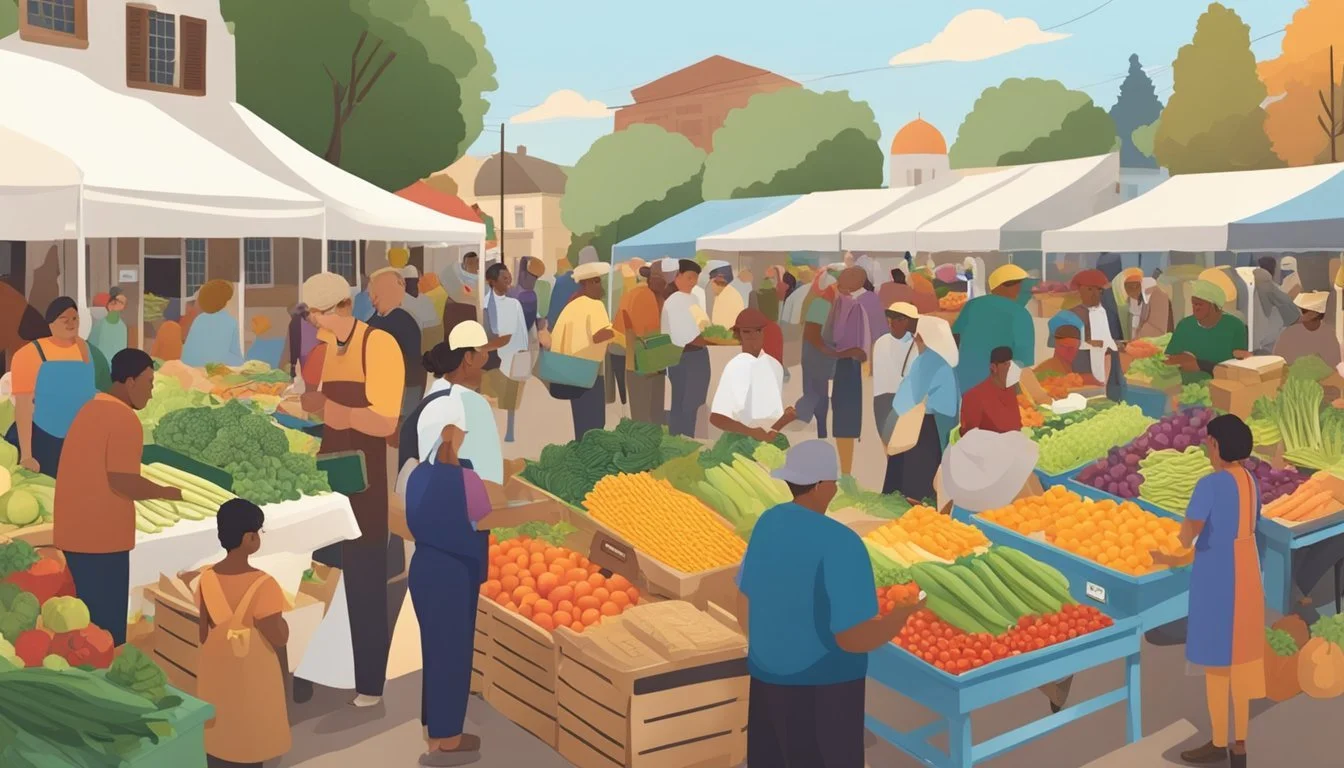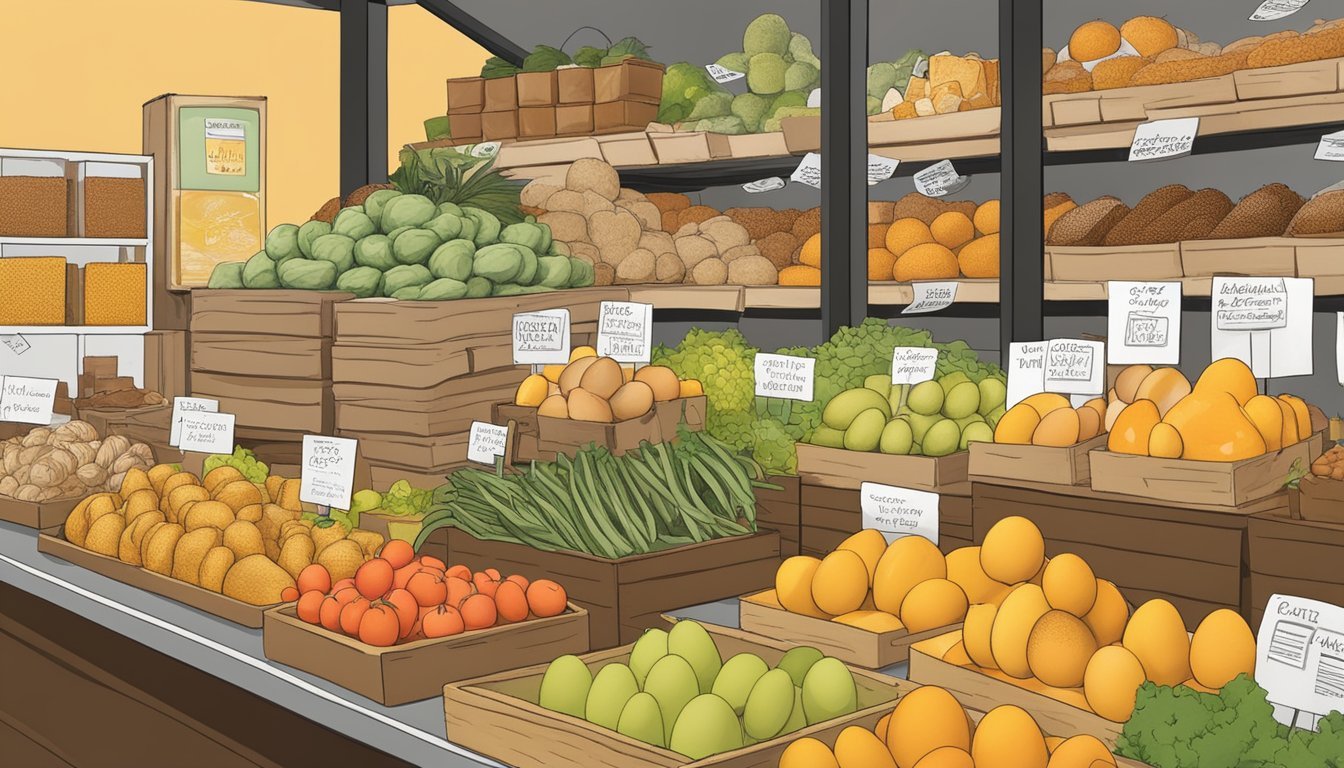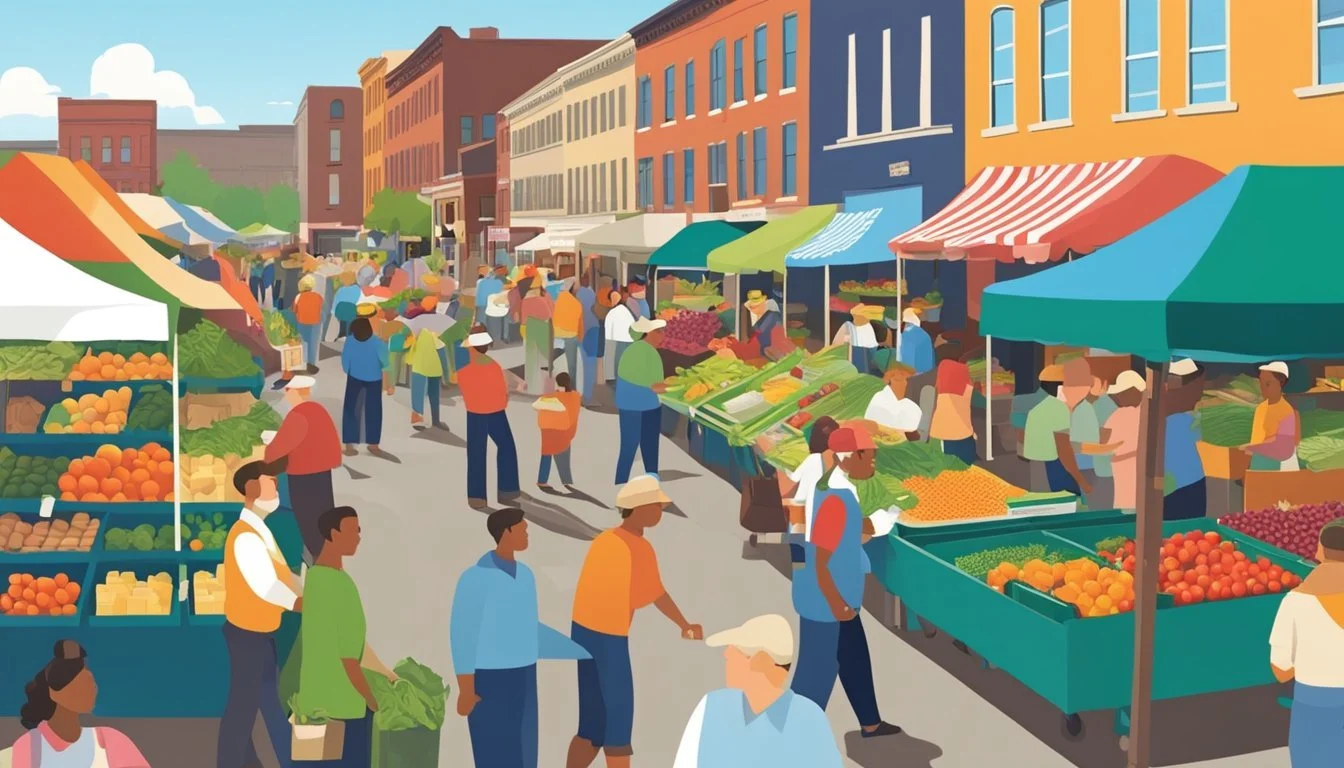Community Supported Agriculture (CSA) in Rochester, NY
A Guide to Local Farm Shares
Community Supported Agriculture, commonly known as CSA, has established a strong presence in Rochester, NY, connecting local residents with the rich farming landscape of the region. CSA programs offer a way for consumers to buy seasonal produce directly from local farms, fostering a closer relationship between growers and their community. Members typically purchase a share of the harvest at the beginning of the growing season, receiving a weekly or bi-weekly assortment of fresh, local, and often organic produce. This arrangement provides stability for farmers and ensures that members get the highest quality and freshest produce during the growing season.
In Rochester, CSA farms serve as a vital source of fresh, organic produce for families and individuals who value high-quality, nutritious food. Local farms in the area cater to a wide range of preferences and budgets through diverse CSA options. These farms, some located in areas like Spencerport, Hilton, and Greece, often employ sustainable farming practices, further reinforcing the community's commitment to environmental stewardship. The direct farm-to-table connection emphasized by CSAs in Rochester not only supports local agriculture but also helps reduce the carbon footprint associated with long-distance food transportation.
Through Rochester's CSA programs, community members have a unique opportunity to engage with local farmers, often participating in the farming process through volunteer opportunities or farm visits. This relationship-building aspect of CSAs strengthens the local food system, making the network more resilient while contributing significantly to the local economy. By investing in a CSA share, Rochester residents actively contribute to the sustainability of their community's agriculture, ensuring that local farms can continue to provide wholesome food for generations to come.
What Is CSA?
Community Supported Agriculture (CSA) provides residents of Rochester, NY with a means to engage directly with local farms. Through purchasing shares, individuals receive a portion of seasonal fresh produce, often produced through organic and sustainable practices.
The Concept of Shares
In CSA, shares equate to portions of a farm's produce that a customer can purchase. By committing financially at the start of the growing season, members secure a regular supply of produce. Payment is usually upfront, which aids in the farm's planning and operational expenses.
Seasonal Fresh Produce
Members of a CSA benefit from a weekly basket of farm-fresh goodies that vary with the seasons. These baskets may include a range of vegetables, fruits, and sometimes other farm products like eggs or honey. The variety of produce fosters a connection to the seasonality and uniqueness of the local agricultural offerings.
Organic and Sustainable Practices
Organic certification, such as that from NOFA-NY, indicates adherence to established organic standards. CSA farms often follow sustainable practices to enhance soil health and biodiversity, limiting synthetic inputs. As a result, members receive high-quality, organic produce whilst supporting environmentally conscious agriculture.
Benefits of Joining a CSA
Joining a Community Supported Agriculture (CSA) program in Rochester, NY provides manifold advantages to members. It fosters a closer connection between the local food sources and the community, ensuring access to fresh, seasonal produce while supporting the sustainability of local farms.
Support for Local Farms
By becoming a member of a CSA, individuals financially contribute to local farmers at the start of the growing season. This stable, upfront support allows farmers to plan more effectively and helps maintain the economic viability of small farms in the Rochester area. It ensures that farmers are able to continue their operations focused on organic practices and sustainable agriculture.
Access to Fresh Food
CSA members reap the benefit of weekly or bi-weekly shares of freshly harvested produce. Typically available from mid-June through October, these shares often include a diverse array of vegetables and fruits. The direct farm-to-table model of CSAs guarantees that families receive the highest quality, nutrient-rich products with a lower carbon footprint compared to store-bought goods.
Community Involvement
Being a part of a CSA transcends the mere transactional exchange; it imbues a sense of community. Members often have the opportunity to participate in farm-related activities such as potlucks and volunteer shifts. This level of involvement creates a transparent relationship with their food sources and offers educational opportunities about sustainable farming practices.
How a CSA Works
Community Supported Agriculture in Rochester, NY, hinges on a symbiotic relationship between local farms and community members. This direct farm-to-table system not only nurtures community bonds but also ensures that members receive fresh, seasonal produce throughout the growing season.
Membership and Payment
Members of a CSA make a financial commitment to a local farm by purchasing a share at the start of the growing season. This upfront payment functions as a way to fund the farm's operations and, in return, members are entitled to a portion of the harvest. The cost and structure of memberships can vary, with some CSAs offering options for different sizes of shares, catering to individual or family needs.
The Growing Season
The growing season in Rochester typically runs from spring through fall. Throughout this period, CSA farms plant, tend, and harvest a variety of crops that are suited to the local climate and soil conditions. Farms actively communicate with their members to provide updates and manage expectations regarding what produce can be anticipated during the various stages of the season.
Receiving and Sharing Produce
Once harvesting commences, members usually receive their share of the produce on a weekly basis. Pickup locations and times are predetermined by the CSA farm. In Rochester, produce includes a variety of vegetables and sometimes additional farm products. Sharing the risk and rewards of farming, members partake in both the bounty and the scarcity that can come from variations in the growing season, weather, and other factors.
Choosing the Right CSA
When selecting a CSA in Rochester, NY, individuals should consider the types of shares offered, the certification and farming practices of the farm, and the location and distribution methods to ensure they align with their needs and values.
Types of Shares
CSAs typically offer various share sizes to accommodate different household needs and budgets. For example, an individual might choose a half share if they live alone or have a small family, while a full share could be more suitable for larger families or those who wish to preserve some of the produce for later use. Porter Farms, for instance, provides both small and large CSA share options, allowing subscribers to select the amount of produce that best suits their consumption pattern.
Certification and Farming Practices
Farm certification, especially certification for organic farming practices, is an important factor for many when choosing a CSA. An organic certification such as one from NOFA-NY ensures that the produce is grown without synthetic pesticides or fertilizers. Consumers who prioritize organic produce should seek out CSAs that are certified organic. In Rochester, farms like Porter Farms have been certified organic by NOFA-NY since 1990, demonstrating a long-standing commitment to sustainable farming practices.
Location and Distribution
The location of the CSA and the distribution of shares are practical considerations. Proximity to the farm or pick-up points can impact one's decision, especially when seeking the freshest produce possible. Many CSAs offer convenient pick-up locations in Rochester and surrounding areas. For instance, some may offer pick-up options at specific addresses in Rochester and nearby cities, or even directly at the farm. It's vital for subscribers to verify that the location and distribution schedule of the CSA align with their lifestyle and availability.
Local CSA Farms in Rochester, NY
Community Supported Agriculture (CSA) in Rochester, NY, connects residents with fresh, locally grown produce directly from the regional farms. CSA members purchase shares of a farm's harvest and regularly receive a portion of the crops throughout the growing season, fostering community engagement and sustainable farming practices.
Mud Creek Farm CSA
Mud Creek Farm, located near Rochester, offers a CSA program that emphasizes ecological farming practices and soil health. Members can access a diverse array of vegetables, with options for both large and small shares to accommodate different household needs.
Wickham Farms
Wickham Farms provides a family-friendly CSA experience. Besides the CSA program, the farm is known for its inviting atmosphere, complete with activities and events that celebrate agriculture and community throughout the seasons.
Homesteads for Hope
At Homesteads for Hope, a CSA goes beyond just food production. It serves as a community where individuals, including those with disabilities, come together to learn and participate in farming. This creates a unique model that combines agricultural business with social inclusion.
Each local farm in Rochester's CSA landscape contributes to the regional food system, bringing fresh produce to local families and strengthening the connection between consumers and the land.
CSA Programs and Events
Community Supported Agriculture in Rochester, NY, revolves around the direct relationship between local farmers and the community, with a focus on seasonal produce and engaging events that foster learning and participation.
Seasonal Events and Markets
The CSA model in Rochester thrives on seasonal markets where fresh, local organic produce is a staple. Summer events are particularly vibrant, connecting consumers with farmers during the peak growing season. These markets often include more than just produce; they feature pumpkin patches and crafts, tying into Rochester's collective passion for seasonal festivities.
Summer Markets: Highlighting the freshest produce, from juicy tomatoes to crisp greens.
Autumn Celebrations: Including pumpkin patches, hayrides, and harvest events.
Workshops and Community Engagement
CSA programs in Rochester extend beyond the weekly produce box by offering workshops and opportunities for community engagement. These activities aim to educate members on sustainable practices and the importance of supporting the local food system.
Workshops: Topics can range from organic farming practices to food preservation techniques.
Volunteering: Many CSAs encourage member involvement through volunteering, fostering a sense of community and collective support for the farm's success.
Beyond Produce: Other CSA Offered Products
Community Supported Agriculture in Rochester, NY extends well beyond fruits and vegetables, offering a variety of locally sourced products that enrich the traditional CSA experience.
Honey and Maple Syrup
CSAs provide local honey, valued for its natural flavors and potential allergy relief properties. Maple syrup, another staple product, is often harvested and processed in the region, offering a rich, natural sweetener.
Honey: Pure, raw, and often harvested from regional wildflowers.
Maple Syrup: Collected from local sugar maples during the brief, early spring "sugaring" season.
Meat and Dairy
Local farms offer a range of meat and dairy products that are often grass-fed and hormone-free. Customers can find a variety of meats, including beef, that is both fresh and ethically sourced.
Beef: Available from cattle raised on open pastures.
Locally produced dairy products including milk, cheese, and yogurt that highlight the region's richness.
Flowers and Herbs
Many CSAs have expanded to include ornamental and culinary plant products, such as fresh herbs and flowers, enhancing both the visual appeal and taste of local offerings.
Flowers: Seasonal varieties that provide aesthetic delight and support local biodiversity.
Herbs and Fresh Herbs: Ranging from basil to rosemary, freshly picked for consumer convenience and flavor enhancement.
Managing a CSA Participation
When participating in a Community Supported Agriculture (CSA) program in Rochester, NY, members can actively engage through various methods including weekly newsletters, volunteering, and understanding inherent risks.
Weekly Newsletters and Recipes
CSAs often provide weekly newsletters to keep members informed about the farm's activities, crop progress, and news. These newsletters are not only informative but often come with recipes tailored to the week's share. They help members discover new ways to enjoy their fresh produce and connect more deeply with the seasonal nature of farming.
Volunteer Opportunities and Farm Visits
Many CSAs encourage their community to participate in volunteer opportunities which foster a deeper connection between consumers and their food. Farm visits are organized for members to experience farming first-hand, and volunteer efforts, such as helping with harvests or events, contribute to the farm’s success. This engagement enhances the understanding of agricultural practices and solidifies the community aspect of the share.
Understanding the Risks
Members of a CSA also share in the risks of farming which include unpredictable weather and crop diseases. CSAs educate their members that receiving a share of the harvest means embracing both abundance and shortages. Clear communication about potential risks prepares members for the realities of agriculture, maintaining trust and managing expectations.
Participants take an active role in their food source by receiving weekly newsletters with updates and recipes, embracing volunteer opportunities, and acknowledging the risks associated with farming. This participation not only benefits individual members but also strengthens the broader CSA community in Rochester, NY.

